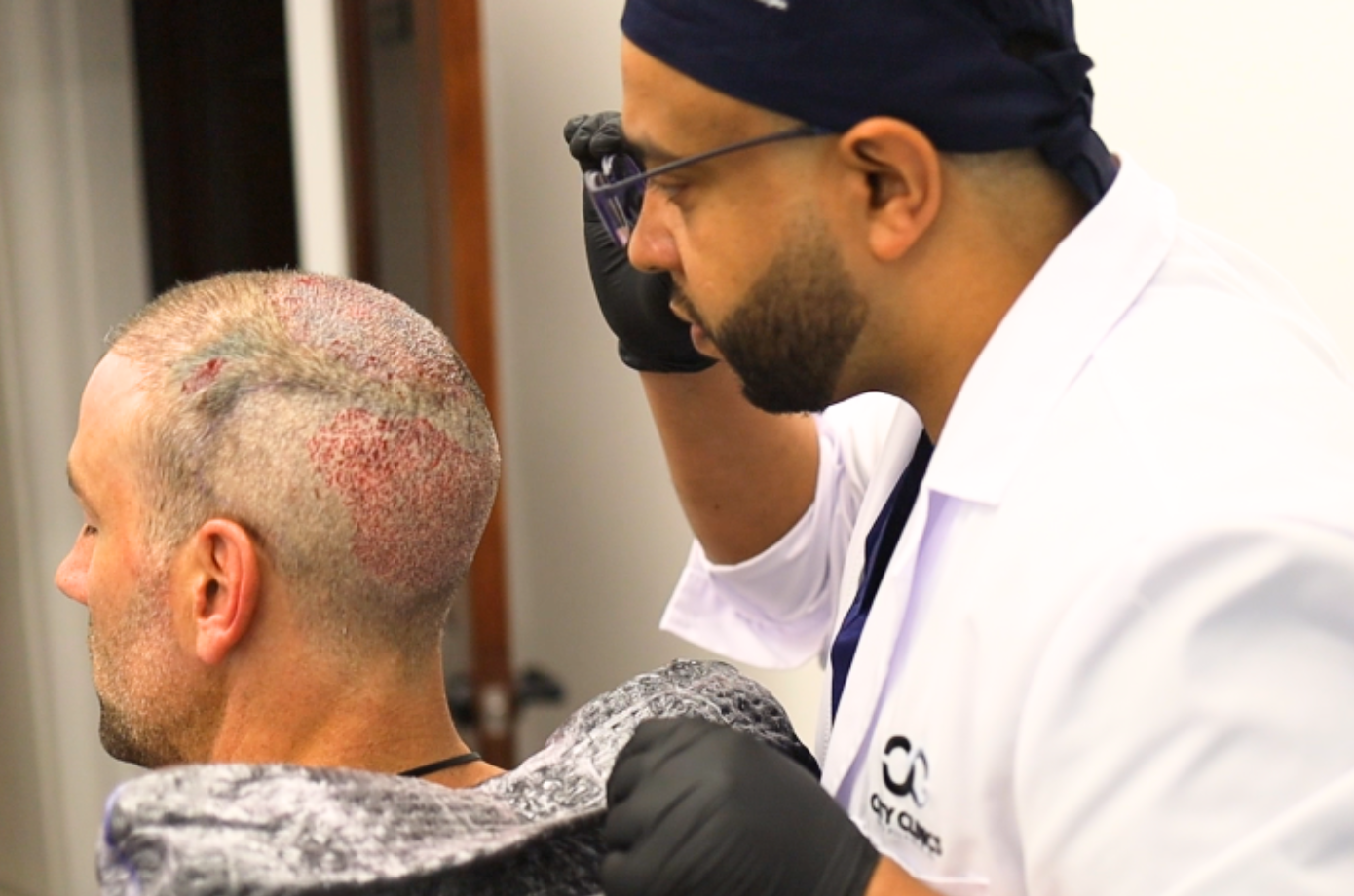Following your hair transplant surgery, it’s vital to stick to our aftercare plan for the best possible results. To make things simple, we’ve created a clear timeline showing when you can gradually resume activities like exercising, wearing a hat, and returning to regular sleep routines.


You should remove the bandage covering the donor area exactly 24 hours post‑transplant. Leaving it on any longer increases the risk of infection.

We recommend abstaining from alcohol for the first 48 hours post‑procedure. This helps minimize bleeding risks and supports optimal healing of your transplanted and donor areas.

You can start wearing a hat or cap five days after your procedure —but only for short periods and without pressure on the transplant area. Helmets should be avoided until at least one month post-surgery to protect the new grafts.

While snuff has less impact on healing than smoking, we still advise avoiding it for at least 48 hours after your hair transplant to support optimal recovery and reduce any potential risk of complications.

Four weeks after the procedure, you can safely enjoy saunas, hot tubs, sea swimming, and public pools without risking damage to the transplanted follicles.

Avoid strong sun exposure to the transplanted area for the first 3 months. If sunbathing earlier, always cover the area carefully with a cap or scarf. After 3 months, normal sun exposure is safe.

You can return to your normal sleeping position two days after your hair transplant. By this point, the grafted follicles have securely taken root, so you won’t risk damaging them during the night. For more guidance on optimal rest in the first 48 hours, see our full sleeping tips.

Begin gently rinsing your transplanted area with lukewarm water 72 hours after surgery. Then, from day 4 onward, you may wash your hair using a mild shampoo—always lather in your hands first and apply without rubbing the grafts.

Two weeks after your hair transplant at City Clinics, the scalp has healed enough for you to safely begin using styling products like gel, wax, or mousse—just be gentle when applying and removing them.

You can resume physical activity 14 days after your hair transplant, as the hair follicles will be strong enough by then.

You may trim the transplanted area after 4 weeks—but not shorter than 3 mm. If using a trimmer, always use a plastic guard to protect the area. You can cut or dye the rest of your hair and the donor area as usual.

Do not shave the transplanted area for the first 6 months. After that, it’s safe to use a razor or blade. Shaving earlier may damage the grafts and affect your final result.
The most critical period is the first 2–3 days, when the area is most sensitive. During the first week, you should take extra care to avoid disturbing the grafts.
After 2 weeks, it’s generally safe to resume light physical activity. However, continue protecting the area from sun exposure and avoid scratching the transplanted hair.
By 3 weeks, you can return to most daily routines—but avoid contact sports, wearing helmets, or shaving with a razor until further along in the healing process.
If you have any questions during your recovery, we’re always here to help.
To minimize the risk of infection, you’ll be given a low dose of antibiotics for the first 3 days following your procedure.
This is not a full course of antibiotics—just a mild preventive dose. In total, you’ll only need to take 4 tablets.
To gently remove scabs and keep the area clean, we recommend rinsing the transplant site with lukewarm water for about 10 minutes in the shower. Avoid washing the area for longer than this.
Ten minutes is enough to soften the scabs and encourage them to fall off naturally. Repeat this daily until all scabs have completely disappeared.
Use lukewarm water—warm enough to comfortably stay in the shower for about 10 minutes. Avoid using cold water on your hair.
The key is to wash gently and allow the scabs to soften naturally without discomfort.
Proven results. Over 90% success. Trusted by thousands.

FUE hair transplant
2,704
12 months

FUE hair transplant
2,574
12 months

FUE hair transplant
1,763
12 months

FUE hair transplant
2,253
12 months

FUE hair transplant
2,434
12 months

FUE hair transplant
2,500
12 months
Please provide your details for a booking appointment.